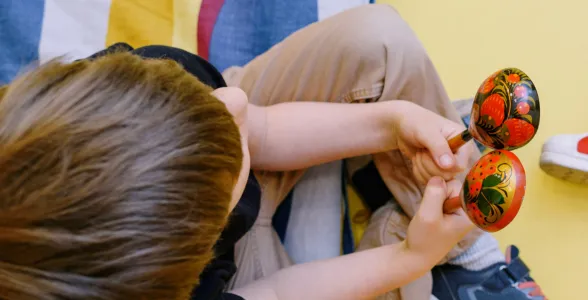
Music Speaks For Itself
The Power of Non-Verbal Communication in Music Therapy to Support Children's Mental Health
You may have heard of the famous phrase “when words fail, music speaks”. Whilst this quote wasn’t intended to link directly to music therapy and mental health, it certainly does! Many children and young people find it hard to talk openly about their feelings and according to mental health charity Mind, two in five young people say that they do not have the words to express how they are feeling when they are struggling with their mental health. Luckily, musical participation and response does not depend solely on the ability to speak, which is why music therapy is particularly effective for people who have difficulty communicating verbally.
Within a safe therapeutic relationship and a client-led approach, Music Therapists can build connection and communication with young people, where individuals are supported to explore their feelings and identity through music. Instead of relying on verbal dialogue, a Music Therapist may introduce activities such as musical improvisation using toys and characters to play the instruments, which reduces the pressure of direct communication. Therapists also have access to non-verbal communication aids like PECs cards, white boards and feelings cards, to further support children to self-express without the need for spoken word.
In contrast to those who find it difficult to open up, The Children’s Society have recently commended young people for their ability to talk openly about their struggles, both in person and over social media. By providing a safe environment in the music therapy space, individuals have the additional opportunity to express their thoughts, feelings, hopes and fears in a creative way, through the means of interventions such as songwriting. Everyone has their own story to tell and songwriting is a unique way in allowing these internalised thoughts to be heard. Processing difficult or traumatic memories through the means of music may provide a less daunting way for young people to approach these complex subjects, and music therapists are trained to facilitate and support throughout the songwriting process.
Join us in our mission to support children and young people's mental health.
Support our Work
Help us to provide Music Therapy to the most vulnerable and isolated members of our society
Donate here

.webp)


.png)